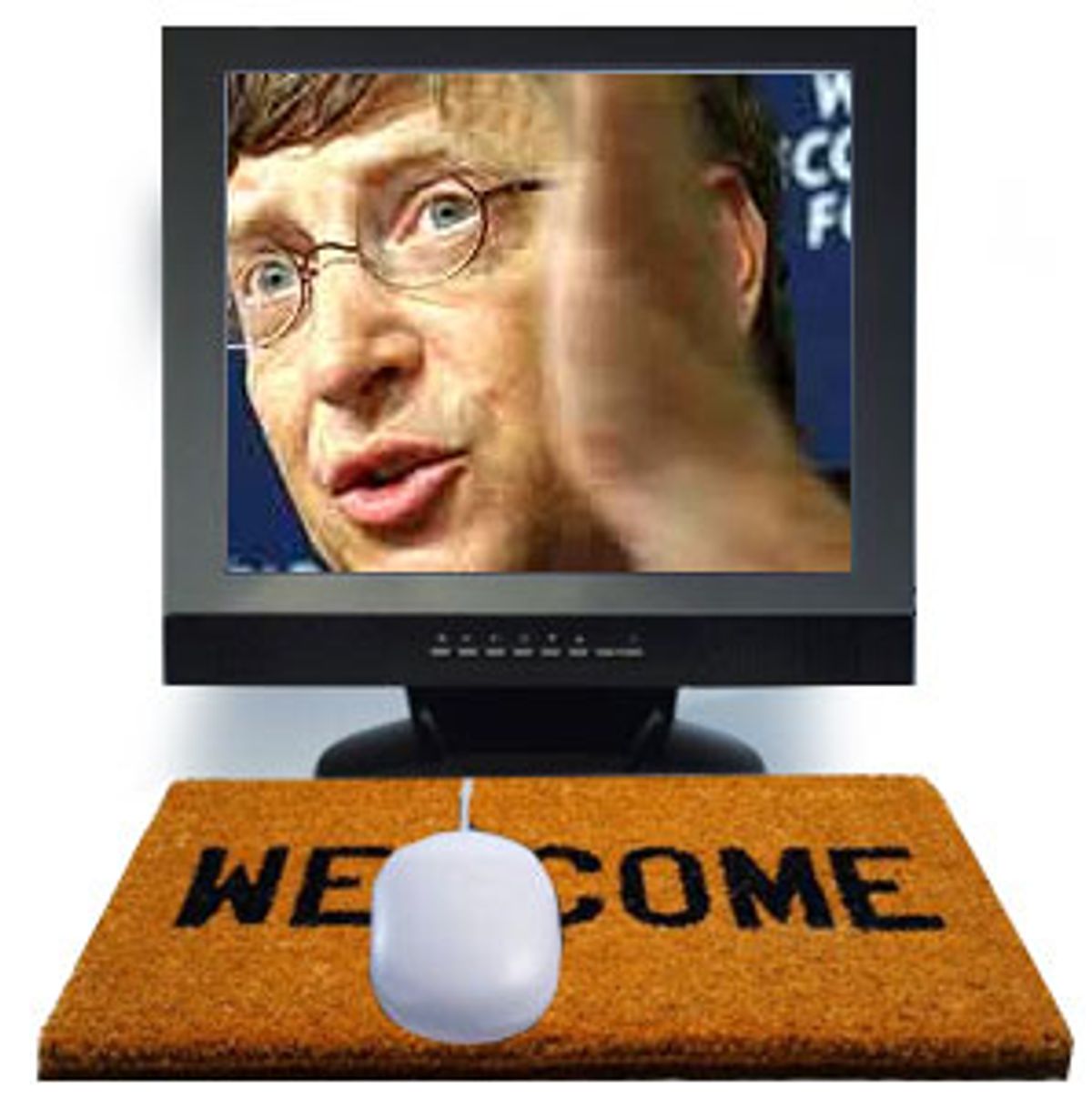As a group, engineers and computer programmers aren't usually given to attending protest marches, which may explain why few high-tech workers have filled the streets to protest the immigration reform legislation currently being debated in Congress. But maybe they should learn to carry cardboard signs. For proposed changes to immigration law could have a severe impact on their industry.
Thursday the Senate passed legislation that will increase the number of H-1B visas available for engineers and high-tech workers from 65,000 to 115,000, with an option of raising the cap an additional 20 percent every year.
Proponents of the legislation -- the owners of high-tech companies such as Microsoft and Intel, or the subcontractors who supply such places with workers -- say that because of the dearth of engineering students currently in college, there is a shortage of qualified candidates.
"The cap on H-1B visas has limited the high-tech industry's ability to attract and retain the best and the brightest workers," says Ginny Terzano, spokeswoman for Microsoft. "It's vital Congress take steps to reform high-skilled immigration policies as soon as possible in order to ensure that the U.S. economy remain competitive."
Bringing people into this country from places like India and China is better for the local economy than shipping jobs overseas, says Carl Camden, president of Kelly Services Inc., a Fortune 500 company based in Troy, Mich. "These people are on the books, highly taxed and a great boon to the communities they work in," says Camden. "The pipeline isn't full of Americans who have I.T. degrees."
Just tell that to Mitch Besser. With a master's degree in software design and development, 20 years experience, and a 4.0 GPA, Besser, 44, hasn't been able to find full-time work since 2001. "If I can't find work, something is up," says Besser, who lives in suburban Portland, Ore., and has worked for places like Intel. He adds that in the past five years, most of his colleagues in the tech industry have left town or switched jobs. "I get infuriated when I hear that they can't find people."
In fact, unemployment is higher as a result of H-1B workers, according to a 2003 study for the Federal Reserve Bank of Atlanta. Furthermore, between 2006 and 2011, new job creation in the computer and electronic products industry is expected to drop from 1.3 million to 1.1 million, according to economic data produced by Global Insight, a national economic forecasting system used by the government.
Norm Matloff, a computer science professor at the University of California at Davis, says the real reason companies want to expand the H-1B visa program is because foreign workers are often entry-level employees who earn less money. Foreign H-1B programmers earn, on average, $13,000 less than U.S. workers, according to the Occupational Employment Statistics program of the U.S. Department of Labor. Often, because these foreign hires are recent graduates, they earn entry-level salaries, making it cheaper to hire them than someone like Besser, with 20 years experience. "This is nothing more complicated than cheap labor," says Matloff.
Gary Nashif, owner of ATSI Group, a Tigard, Ore., consulting company that finds jobs for high-tech workers, acknowledges this trend. "There are subcontractors that bring people over from India and their salaries are usually lower, but their culture in India is different than ours."
Generally, industry lobbyists are quick with statistics and reports, but in this case it appears they weren't needed. Neither Microsoft nor Intel would reveal how many Ph.D.s or master's students they hired last year, and how many they need for next year. When the companies and their lobbyists were asked what data and reports they showed Congress to convince them of the need for these new visas, they reported that they don't have any reports and statistics. Marcus Courtney, president of WashTech/CWA, a tech workers union, says as long as they have Bill Gates on their side, "they don't need to use anything to substantiate their arguments."
"William Gates was in Washington, lobbying -- a pretty high-priced lobbyist -- to come talk about the needs of Microsoft, a marvelous company, high-tech, enormous advances for America -- he wants more people with Ph.D.s and wants a larger quota of visas for those people to come in," Sen. Arlen Specter, R-Pa., the bill's author, told Salon when asked what data the industry had shown him. "We have accommodated that. And we have created more opportunities for people to come in who are students."
Such ardor for Gates flows from both sides of the aisle. When asked about reports and data presented to convince Democrats on the Judiciary Committee that the U.S. didn't have the workforce it needed to fill these jobs, Tracy Schmaler, spokesperson for the Democrats on the Judiciary Committee, responded: "Did you know Bill Gates has been pretty high-profile on this?"
Critics of the bill, mainly academics and those who represent American tech workers, say they have no voice on this issue; that Congress has been blinded by campaign contributions of big companies. In 2004, Microsoft alone spent $9.46 million on lobbying and hired 16 different firms; it listed immigration as one of its top issues on lobbying disclosure forms, according to data from the nonprofit Center for Responsive Politics. That same year, computer and Internet industries spent $70.5 million on lobbying.
"There is no greater case study to understand corporate power in politics," says Courtney of the tech workers union. "I could give you 75 reports that prove that H-1B is a horribly flawed program that hurts American workers, but it doesn't matter. As long as Bill Gates says there's a shortage, and that's it, thanks for playing, game over, try again next session."



Shares